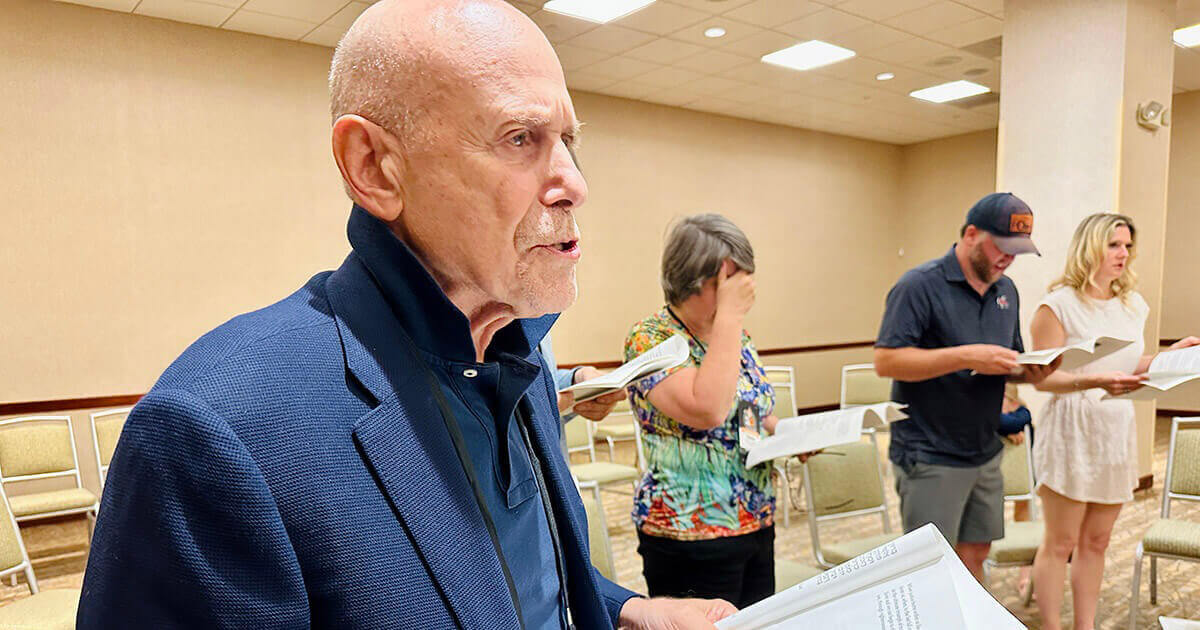Award-winning Yiddish Author Yehuda Elberg, 91, Dies in Montreal
Award-winning Yiddish author Yehuda Elberg died in his sleep in Montreal on October 18. He was 91.
A widely acclaimed Yiddishist whose body of work documented shtetl life, he gained popularity in the English-speaking world after a 1997 English translation of two of his novels: “Ship of the Hunted” and “The Empire of Kalman the Cripple.” In an interview with the Forward last year, Elberg said of his two books’ English translation: “At the age of 85, I gave birth to twins.”
While he found new audiences with his English translations, Elberg remained committed to the Yiddish language. “I don’t accept what people say, that Yiddish is dead or dying,” he told the Forward. “Something that is dead doesn’t grow.”
Born in Zgierz, Poland, in 1912, Elberg became a rabbi but primarily focused his energies on writing. He published his first short story in 1932 and went on to write for several Yiddish and Hebrew newspapers. During the Holocaust, Elberg was actively involved with both the Lodz and Warsaw resistance movements, setting up safe houses and managing to avoid deportation to a concentration camp. Toward the end of the war, he got military accreditation to trail the American military as a correspondent and, according to his son Nathan, wore an American military uniform. Most of his stories written during the war were lost.
After the war, he lived in Paris and became close friends with the Yiddish writer Chaim Grade, who pushed Elberg to continue working. “One day [Grade] came in to me and said, ‘Why aren’t you writing?’ in a fatherly tone,” Elberg told the Forward in 2002, explaining how Grade had nurtured him “like a brother or father.”
A committed Zionist, Elberg worked in New York after World War II, helping Jewish refugees immigrate to Palestine. He married Tahilla Feinerman, also a Zionist, who died in 1955. He relocated the following year to Montreal, where he remained for the rest of his life with his second wife, Shaindle Stipelman Bloomstone, who died in 1987. In his adopted city of Montreal, Elberg became a prolific writer and published many of his stories in literary journals.
Elberg was often compared to famed Yiddish writer Isaac Bashevis Singer — his distant cousin — but the comparison made Elberg bristle. In an interview with the Canadian Jewish News in 1998, Elberg said that Singer was “a pessimist” whose stories portrayed shtetl life in a negative light.
Elberg was honored with numerous prizes during his lifetime. In 1977, he won the Itsik Manger Prize, which is often called the Nobel Prize of Yiddish Literature; he was granted the award in Tel Aviv by Golda Meir, in her last public appearance. In 1984, he won the Prime Minister’s Award, an Israeli literature prize that had been given only once before to a non-Israeli: Singer.
“Often his advice would take the form of quotations from the Talmud,” said his daughter, Eve Elberg, in an interview with the Forward. “He had an oceanic knowledge of Hebrew rabbinical texts, but at the same time was very worldly and knew how to take things in perspective. He had a joie de vivre that was amazing, considering how much he had undergone in his life. He inspired and set an example for us.”
Since last December, Elberg was in a nursing home in Canada, where his son Nathan read the Forward to him.
He is survived by his daughter, Eve; his sons, Gary and Nathan; six grandchildren and five great-grandchildren.
A message from our editor-in-chief Jodi Rudoren

We're building on 127 years of independent journalism to help you develop deeper connections to what it means to be Jewish today.
With so much at stake for the Jewish people right now — war, rising antisemitism, a high-stakes U.S. presidential election — American Jews depend on the Forward's perspective, integrity and courage.
— Jodi Rudoren, Editor-in-Chief






















